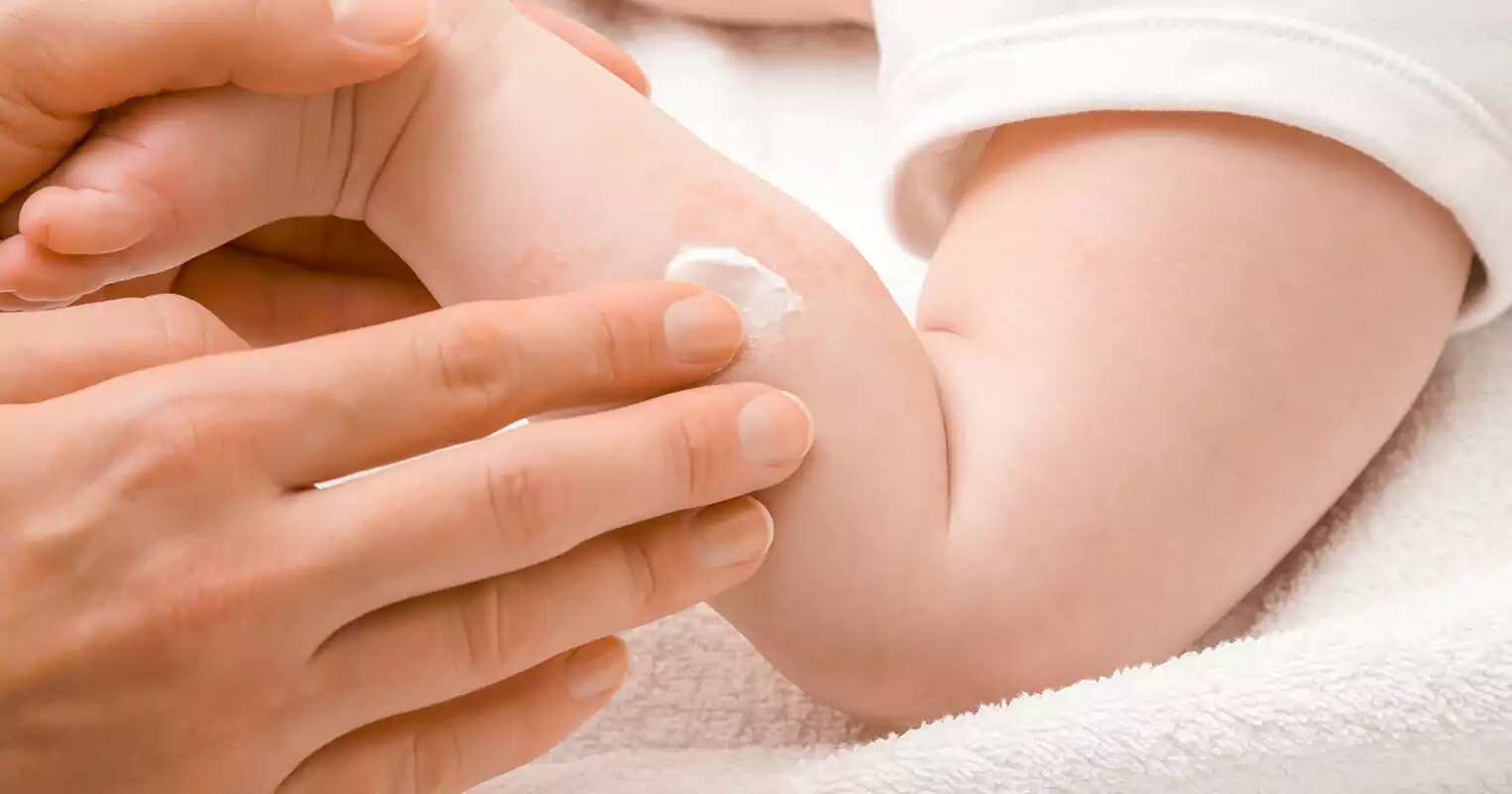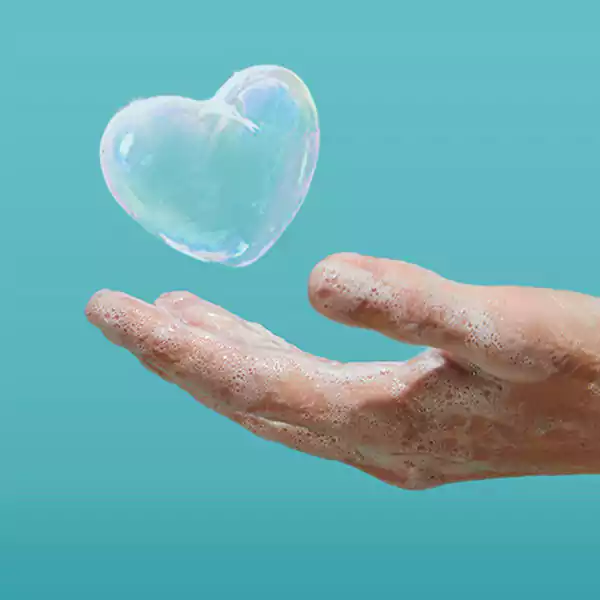Use a baby moisturizer
After bathing, apply a gentle, irritant-free baby moisturizer with colloidal oatmeal. This helps to improve the skin barrier function and retain moisture in your baby’s skin(7). We recommend a soothing moisturizer like Cetaphil Baby Eczema Soothing Lotion.
Dress for comfort
Choose loose clothes made of cotton to prevent your baby’s skin rubbing too much against her clothes and becoming irritated. And be sure to use a mild, fragrance-free detergent when washing(8).
Address the itch
Baby eczema can be very itchy, even preventing some babies from sleeping. Your baby may end up scratching the dry patches, making the rash worse or even leading to infection. That’s why it’s really important to try and alleviate the itch by using a gentle moisturizing lotion with itch-soothing ingredients(9). Also, be sure to prevent harmful scratching by trimming your baby’s nails and using mittens(10).
Check the ingredients
While herb and plant-based products have become popular even in baby care, extracts and fragrances that are present in these cleansers and lotions can be irritating. Instead, choose products that are especially designed for sensitive baby skin, like Cetaphil Baby Soothing Wash(11).
Give your baby short baths
Give your baby short, 10-minute baths with lukewarm water – aim for 100°F/38°C(12) – using gentle cleansers made specifically for delicate baby skin. When done, pat dry with a clean towel, and remember to use a baby moisturizer or baby oil to help lock in moisture.
Check the heat and humidity
Heat can be a stressor, and can cause baby eczema or atopic dermatitis to flare up. Be sure that your baby isn’t covered in too many blankets, and that the temperature in her room is comfortable. Around 65°F (18°C) is ideal(14). Some parents also opt for a humidifier in their baby’s room to add moisture to the air and hydrate thirsty skin(15).
Consider calling a doctor
If symptoms get worse, and especially if blisters and a yellowish crust appear on your baby’s rashes, it may be time to call a doctor. Baby eczema can sometimes lead to infection, which may require antibiotics(16).
Remember that baby eczema, while it can be upsetting to see on your infant, is very common, and is one of the most treated skin conditions among babies. With these steps above, you’ll help your baby feel more comfortable and ease her symptoms.











